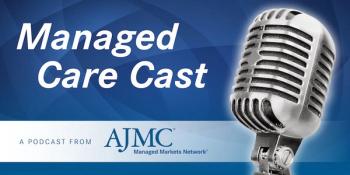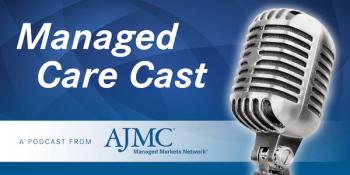
The bipartisan bill spells out 5 step therapy exemptions for patients by amending the Employee Retirement Income Security Act of 1974.


The bipartisan bill spells out 5 step therapy exemptions for patients by amending the Employee Retirement Income Security Act of 1974.

As the first quarter of 2021 ends, patients choosing to keep using secukinumab may be offered an inducement to switch to another biologic, ixekizumab.

President Biden outlines new vaccine goal; the United States will stop distributing Eli Lilly's bamlanivimab; rates of human papillomavirus (HPV) decrease among females.

The announcement allowing the administration of COVID-19 vaccines in dialysis centers is part of a larger $10 billion investment, largely funded by the American Rescue Plan, to expand access.

Survey responses of 320 US hospitals highlight the dire consequences of the COVID-19 pandemic on facilities and point to a future of ongoing financial and staffing challenges.

How can health care systems talk about the issue of COVID-19 vaccine hesitancy with their patients? On this episode of Managed Care Cast, Pat Salber, MD, MBA, of The Doctor Weighs In, interviews the developer of interactive, people-centered, multimedia, educational programs for Wolters Kluwer Health.

A survey released this month of US patients with blood cancers shows a somewhat surprising level of hesitancy about receiving a COVID-19 vaccine, but because patients with cancer were not included in clinical trials, the situation for this population is somewhat nuanced.

The authors describe federal and state provider network adequacy standards and discuss how regulators should adapt these standards and accompanying monitoring processes in response to coronavirus disease 2019 (COVID-19).

Xavier Becerra, California's attorney general, will become the next secretary of HHS after the Senate voted 50-49, split by party lines.

The study examined the cost to Medicare when patients with end-stage renal disease switched from their employer-based health insurance to Medicare between 2007 and 2017 before the end of the 30-month coordination period.

This article describes a recently finalized CMS rule addressing the permissibility of co-pay accumulator adjustment programs (CAAPs) when no generic is available.

On this episode of Managed Care Cast, we speak with the chief medical officer for Virginia’s Medicaid program about 4 ways payers can make sure that those with opioid use disorder get the treatment they need; the strategies are outlined in the March issue of The American Journal of Managed Care.

Between 1999 and 2018, Black adults living in rural regions of the United States experienced high mortality rates due to diabetes, high blood pressure, heart disease, and stroke compared with White adults, according to new research published in the Journal of the American College of Cardiology.

Anita Makkenchery, MD, MPH, and Brandy Farrar, PhD, discuss how community health workers can address COVID-19 vaccine hesitancy.

A panel of policy experts, including employees of the previous 2 administrations and a former lobbyist for health plans, discusses achievements of value-based insurance design and how to take the concept to the next level.

President Biden orders states to broaden vaccine eligibility by May 1; new data from Novavax, Pfizer point to high vaccine efficacy; Supreme Court will not hear arguments on Medicaid work requirements.

This article documents a 100% increase in privately insured outpatient knee replacement surgeries following Medicare’s decision to remove knee replacements from its Inpatient Only list.

During a session presented at the America’s Health Insurance Plans (AHIP) National Health Policy Conference, Michael Chernew, PhD, the director of Healthcare Markets and Regulation Lab at Harvard Medical School, and Mark McClellan, MD, PhD, founding director at Duke Margolis Center for Health Policy, discussed the potential for Medicare innovation and reforms in 2021 and beyond.

The $1.9 trillion spending package aimed at providing COVID-19 relief for those with low and middle incomes also represents the biggest investment in the exchange marketplaces created by the Affordable Care Act (ACA) since the landmark law was passed 11 years ago.

During a session presented at the America’s Health Insurance Plans National Health Policy Conference, experts laid out potential policy priorities for states in the wake of the COVID-19 pandemic.

In a session presented at America’s Health Insurance Plans (AHIP’s) National Health Policy Conference, federal health officials and health plan representatives highlighted successes of the country’s ongoing COVID-19 vaccine rollout, placing particular emphasis on the role equity plays in distribution.

On this episode of Managed Care Cast, Sarah Carroll, MPH, director of the Center for Care Transformation at AVIA, discusses the challenges of implementing digital health in underserved populations and the potential of these solutions to better address health disparities in the United States.

This study explored the statistical association of key social determinants of health with specific health outcomes to validate impact and then created weighted categorical matrices.

The House of Representatives is expected to grant final approval to the COVID-19 relief bill by Tuesday; FDA probes major baby food companies selling products containing unsafe levels of toxic heavy metals; FDA issues emergency authorization for novel test to detect past COVID-19 infection.

Anita Makkenchery, MD, MPH, and Brandy Farrar, PhD, discuss how the pandemic has highlighted the need for community health workers and what sets them apart from other health care professionals.

259 Prospect Plains Rd, Bldg H
Cranbury, NJ 08512
© 2025 MJH Life Sciences®
All rights reserved.
